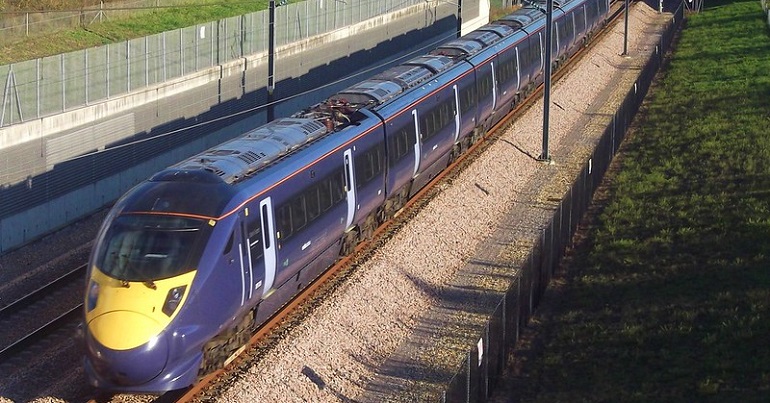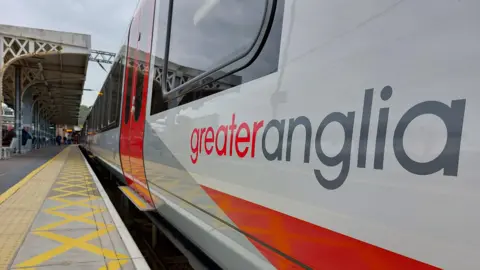
By: Amanda E Poste* and André Frainer* // Norwegian Institute for Nature Research, Bodil A Bluhm and Rolf A Ims // UiT The Arctic University of Norway
* Also affiliated with UiT The Arctic University of Norway
When we hike on a local mountain we move through different types of vegetation, from barren tundra to meadows and forests. We cross mires, hop over streams, walk along lake shores. When we reach the coast, we see rivers meeting the sea and wade to our knees in salt water to look for sea creatures.
On our hike, without noticing, we have already crossed several ecosystems – freshwater, terrestrial, and marine. While the boundaries between these ecosystems are not always very clear, they often have their own management plans and research traditions.
TOP PHOTO
When we hike on a local mountain we move through different types of vegetation, from barren tundra to meadows and forests. Photo: Helge M. Markusson/The Fram Centre
Terrestrial, freshwater, and marine ecosystems are all strongly connected, yet climate change research and environmental management often ignore such cross-ecosystem linkages and impacts. Given the sweeping nature of industrial impacts on the planet, from local-scale effects on soil and drinking water, to global-scale effects on biodiversity and climate, there is a pressing need for a more holistic understanding and management of socio-ecological systems. This type of holistic, integrated understanding requires improved insight into how global change is likely to impact cross-ecosystem connectivity and links between nature and society at the landscape scale – from catchment to coast (C2C).
C2C Goals
The goal of the C2C research programme is to improve our understanding of how terrestrial, freshwater, and marine ecosystems are linked, and how we can improve their integrated management. In C2C, we take an integrated approach across ecosystem boundaries, from catchment to coast, in three key study areas: Isfjorden/ Adventdalen in Svalbard, and Målselv/Malangen and Varanger/Tana, both in northern Norway.
In these case study regions, C2C will build understanding about climate change impacts “from catchment to coast” and will contribute much-needed knowledge in support of the development of more holistic integrated ecosystem-based management plans in the case regions. Our ambition is that the work in C2C can also serve as model for other areas in northern Norway and other Arctic regions.
Mission
C2C brings together natural and social scientists and stakeholders to deliver new knowledge related to cross-ecosystem linkages among terrestrial, aquatic, and coastal marine ecosystems, and the importance of these linkages for understanding, managing, and mitigating climate change impacts in the Norwegian north (including Svalbard).
Case studies capture many contexts

At the core of C2C is a set of case studies in northern Norway and Svalbard, where we carry out coordinated and cohesive research across ecosystem and disciplinary boundaries and engage with key local and regional actors. In the case studies, we link and synthesise existing data, field observations and experiments, local knowledge, climate predictions, and current management approaches. The selected sites cover a range of climate, ecological, social, and governance contexts, and capture a broad range of important cross-ecosystem interactions.
For example, case study sites in northern Norway provide opportunities for relevant cross-ecosystem research related to the effect of vegetation change (e.g. greening, browning, shrubification); effects of pink salmon on freshwater and terrestrial nutrient availability and freshwater invertebrate community structure; the magnitude, timing, and impact of terrestrial carbon and nutrients transported from rivers to fjords; and the effects of climate change on floods, droughts, and snow cover extent.
Interdisciplinary team
C2C brings together over seventy researchers from twelve Fram Centre institutes: together, they provide expertise related to governance and management; climate science; terrestrial, freshwater and marine ecology; socio-ecological systems; hydrology; biogeochemistry; anthropology; geomorphology; environmental monitoring; remote sensing; and outreach. C2C is organised in a work package structure that takes advantage of this expertise and ensures a connection across disciplines. In addition to bringing together new constellations of researchers across disciplines and ecosystems, C2C also takes advantage of ongoing research, existing infrastructure, and monitoring time series in the partner institutes, including data and infrastructure developed through the previous Fram Centre flagships.
Work in progress – 2022 to 2026
C2C has started by working with key stakeholders to identify knowledge gaps and prioritise research needs when addressing cross-ecosystem linkages in northern Norway under climate change (WP1). This important step ensures that different perspectives can be heard and contribute to the planning of new research themes in C2C. Other ongoing activities include the establishment of climate models for better detecting changes in snow cover, seasonality, and vegetation (WP2), analyses of the flux and fate of carbon and nutrients from rivers to the sea (WP3), the interplay between primary producers and consumers across ecosystems (WP4), the assessment of management plans for northern Norway (WP5), and integration and synthesis of the work happening across C2C (WP6).
C2C
In C2C we define cross-ecosystem linkages as movement of water and material (including organisms) across terrestrial–freshwater–marine ecosystem boundaries. Cross-ecosystem impacts occur when changes in one ecosystem have effects that cross over ecosystem boundaries (e.g. impacts of terrestrial climate and vegetation change on freshwater and coastal water quality, impacts of changing stream invertebrate communities on the types and quantities of insects that cross over into terrestrial food webs).
This story was first published by the Fram Forum


 © Indian and Northern Affairs/Library and Archives Canada/Reuters Female students and a nun pose in a classroom at Cross Lake Indian Residential School in Cross Lake, Man., in a February 1940 archive photo. Alberta had some of the highest numbers of residential schools.
© Indian and Northern Affairs/Library and Archives Canada/Reuters Female students and a nun pose in a classroom at Cross Lake Indian Residential School in Cross Lake, Man., in a February 1940 archive photo. Alberta had some of the highest numbers of residential schools.







